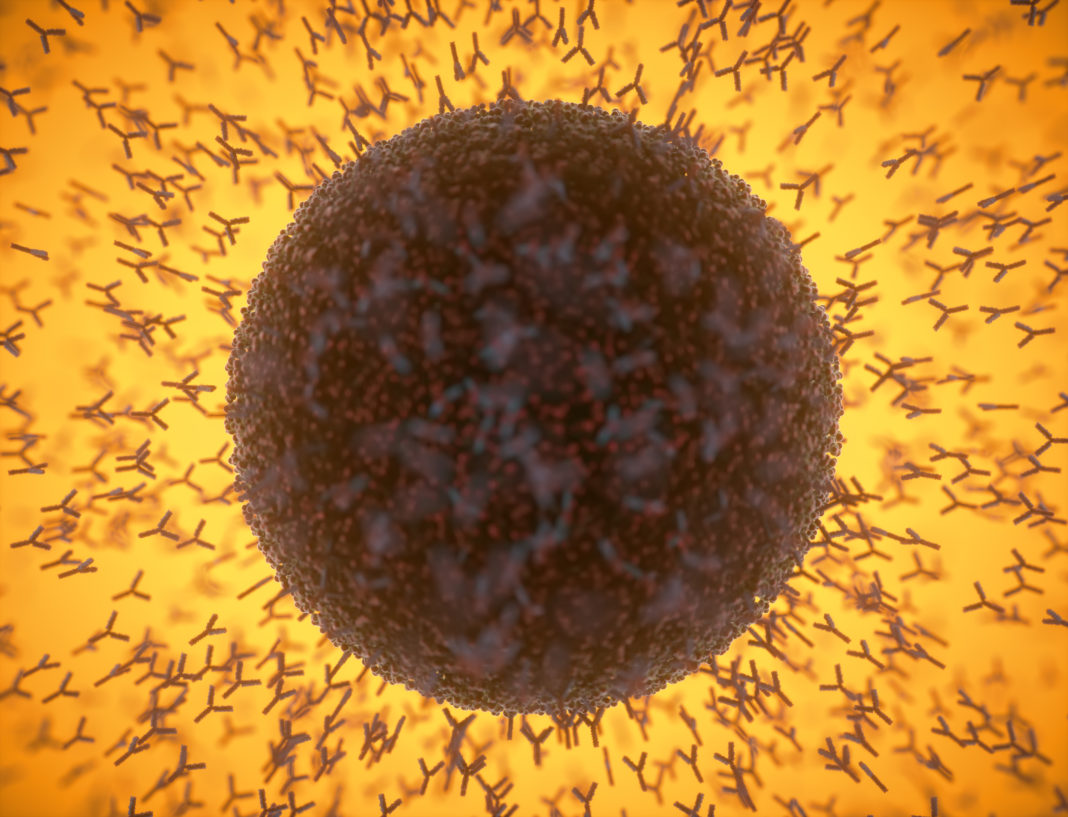Each passing week brings more questions about the SARS-CoV-2 variants. One of the biggest questions has been whether the emerging variants will respond differently to neutralizing antibodies made by people who have been infected. This point is important to understand, as it may alter the ability of our current arsenal of therapeutics and vaccines to combat the infection.
Now, new research from the labs at the Aaron Diamond AIDS Research Center at the Columbia University College of Physicians and Surgeons, suggests that two of the variants, the B.1.351 and B.1.1.7 SARS-CoV-2 variants (first detected in South Africa and the U.K., respectively), show increased resistance to antibody neutralization in laboratory experiments. The findings suggest that current antibody therapies and vaccines may be less effective against some variants of the virus.
This work is published in Nature, in the paper, “Antibody Resistance of SARS-CoV-2 Variants B.1.351 and B.1.1.7.” A preprint of the study was first posted to BioRxiv on January 26, 2021.
Monoclonal antibodies, which target specific sites on the SARS-CoV-2 virus, are being used in hospitals to treat COVID-19. However, these therapeutics were designed to work against the initial variant of SARS-CoV-2, which emerged in 2019.
David Ho, MD, professor of microbiology & immunology and director, Aaron Diamond AIDS Research Center, and colleagues, assessed the ability of 30 monoclonal antibodies, along with plasma from 20 patients who recovered from COVID-19 and sera from 22 people who have been vaccinated, to neutralize the B.1.351 and B.1.1.7 variants of SARS-CoV-2.
The authors found that the B.1.1.7 variant was resistant to neutralization by monoclonal antibodies that target the N-terminal domain of the spike protein and was relatively resistant to some antibodies that target the receptor-binding domain. However, it was not resistant to plasma from patients who had recovered from COVID-19 and sera from individuals who were vaccinated, and the authors suggest that this variant will not have a marked impact on current therapies or vaccines.
However, in addition to resistance to neutralization by antibodies to the N-terminal domain, the B.1.351 variant was found to be resistant to a group of monoclonal antibodies that is currently used in therapies that target the receptor-binding motif of the spike protein, which was primarily attributed to the E484K mutation. The neutralizing activity of plasma from patients who had recovered from COVID-19 and sera from people who had been vaccinated was reduced by approximately 9- and 10–12-fold, respectively, against this variant.
The study’s predictions are being borne out with the first reported results of the Novavax vaccine, said Ho. “The approximately 2-fold loss of neutralizing activity against the U.K. variant is unlikely to have an adverse impact due to the large ‘cushion’ of residual neutralizing antibody activity,” Ho said, “and we see that reflected in the Novavax results where the vaccine was 85.6% effective against the U.K. variant.”
Data from Ho’s study about the loss in neutralizing activity against the South Africa variant are more worrisome. “The drop in neutralizing activity against the South Africa variant is appreciable, and we’re now seeing, based on the Novavax results, that this is causing a reduction in protective efficacy,” Ho said. The company reported on January 28 that the vaccine was nearly 90% effective in the company’s U.K. trial, but only 49.4% effective in its South Africa trial, where most cases of COVID-19 are caused by the B.1.351 variant.
The new study did not examine the more recent variant found in Brazil (B.1.1.28) but given the similar spike mutations between the Brazil and South Africa variants, Ho said the Brazil variant should behave similarly to the South Africa variant.
They argue that SARS-CoV-2 is mutating in a direction that may cause it to evade current interventions that are directed against the viral spike protein. “Our study and the new clinical trial data show that the virus is traveling in a direction that is causing it to escape from our current vaccines and therapies that are directed against the viral spike,” said Ho.
“If the rampant spread of the virus continues and more critical mutations accumulate, then we may be condemned to chasing after the evolving SARS-CoV-2 continually, as we have long done for influenza virus,” Ho explained. “We have to stop the virus from replicating and that means rolling out vaccine faster and sticking to our mitigation measures like masking and physical distancing. Stopping the spread of the virus will stop the development of further mutations.”



